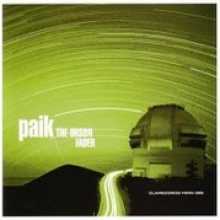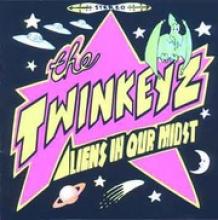Paik: Simple Rock Sounds Abound
It’d be difficult to quantify the general cache Terrascope Music carries around. It was an internationally distributed magazine focused on disseminating criticism concerned with the most obscure sorts of music. And in the new millennium migrated to an online presence, all but withdrawing from a print medium. Perhaps it’s that shift, which so many other publications undertook, that’s mitigated Terrascope’s broad impact. But the outlet still posts on a semi-regular basis, so maybe there’s hope.
At one point, though, Terrascope endeavored to round up the greatest one hundred albums of all time. A fool’s errand, obviously. But that being said, it’s unquestionable that a bunch of folks, including myself, took a gander and went to go dig for new sounds. There are well know acts included – the Beach Boys are on there as are the Byrds and King Crimson. That being said, the most interest portions of the list are those counting relatively low key bands – or even bands that have recently been kicking around, just not getting huge. So, mentioning a band like Paik may or may not be a revelation.
Formed in 1996, the band’s Orson Fader was released eight years on. And from a cursory listen to “Tall Winds” and its introduction, understanding the band as a crew of veterans isn’t difficult. Trickling in and maintaining an almost painfully slow tempo throughout, the track doesn’t go anywhere significant, instead trading on its ability to glide along while sounding as if there’s nothing propelling the work apart from a brisk wind.
It’s all heavy sounds. Even the slowest, most serene moments of Orson Fader are related in the most twisted way possible. The aforementioned track – and really there’s almost no reason to discuss others seeing as each is built on roughly the same concept – drones on with a single chord serving as an anchor. And while most will cry krautrock, Paik is just working on finding a groove in the easiest way possible. Making it to the eight minute mark with the most fleeting sense of song construction isn’t a possibility for most, but Paik seems capacious of working with the minutiae of any one element and raving it into a giant rock track.
Elsewhere, the band must have flubbed its formula, but over the duration of Orson Fader there’s not too much distance from Paik’s hypothesis, so no real chance of failing. Some will understand this as esoteric music. But it’s really just the simple sounds of rock reduced to no end.






